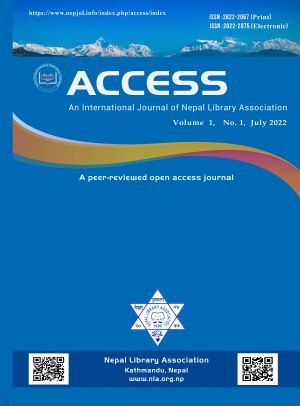Post-COVID Library: Educating Children to Media and Information Literacy through UNESCO’s Memory of the World Programme
DOI:
https://doi.org/10.3126/access.v1i1.46603Keywords:
Documentary heritage, Media and information literacy, Global citizenship education, UNESCO’s Memory of the World ProgrammeAbstract
The COVID-19 pandemic has severely disrupted children's education in schools, and reflects the urgent demands of children and their educators for diverse learning channels and materials. Memory institutions such as libraries, archives and museums, as repositories of reliable sources of information and knowledge service provider, have a responsibility to contribute to the cultural and media literacy education of children. Therefore, memory institutions should explore innovative ways to safeguard and utilize documentary collections in media and information literacy education for people and especially children, and share and promote good practices. These efforts will also inspire younger generations to participate in the preservation and transmission of historical records.
Downloads
Downloads
Published
How to Cite
Issue
Section
License
Copyright (c) 2022 Nepal Library Association

This work is licensed under a Creative Commons Attribution-NonCommercial 4.0 International License.




